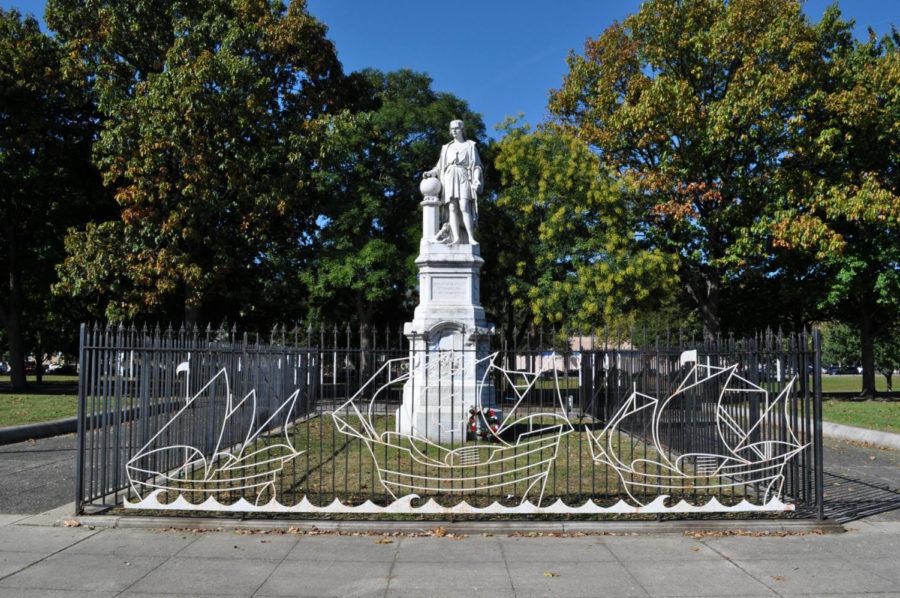Editorial: Iowa right to choose Indigenous Peoples Day over Columbus Day
Courtesy of Nicolino Giovannucci
Christopher Columbus Monument in Marconi Plaza, 2848 S Broad St Philadelphia, Pennsylvania, within railing sculpture of Nina, Pinta and Santa Maria. Emanuele Caroni, Sculptor (1876).
October 6, 2018
Today, the federal government celebrates the holiday currently recognized as Columbus Day.
The history behind the observance of Columbus Day stretches back to 1792, when the Massachusetts Historical Society in Boston celebrated the 300th anniversary of the discovery of the “New World.” However, it did not become a federal holiday until 1934, where Congress and President Franklin D. Roosevelt set the second Monday in October aside to celebrate it.
Now, almost 85 years later, it’s time for us to rethink what and why we celebrate this day.
There is certainly no disputing that Christopher Columbus was not the godlike, benevolent figure proclaimed in elementary school history books. However, he was actually rather a ruthless, self-serving social climber who stopped at nothing to advance his ambitions.
Historians who deal with the evidence of his brutality are often decried as politically correct and revisionists by those who cling to the myths of a gilded hero who brought “civilization” to “savages.” The truth, however, is far darker.
Columbus had no qualms about becoming a slaver, writing in his logbook “They do not bear arms, and do not know them, for I showed them a sword, they took it by the edge and cut themselves out of ignorance … they would make fine servants … with 50 men we could subjugate them all and make them do whatever we want,” referring to the indigenous populations he encountered.
A Catholic priest sent to observe the region that Columbus governed describes “insatiable greed and cruelty,” writing that “[the Spaniards] thought nothing of knifing [American] Indians by tens and twenties and of cutting slices off them to test the sharpness of their blades … my eyes have seen these acts so foreign to human nature, and now I tremble as I write.”
Many cities and other governmental entities now celebrate the second Monday in October as Indigenous People’s Day, including the states of Minnesota, Vermont, Alaska and South Dakota.
This year, Iowa can join that list with pride as Gov. Kim Reynolds proclaims today as the State of Iowa’s inaugural Indigenous Peoples Day.
We have indubitably made strides toward recognizing the suffering that Native American populations were put through during the discovery of America by not celebrating their oppressors. Until we do away with Columbus Day entirely, though, those efforts will remain incomplete.







